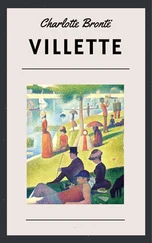‘Comme c’est affreux!’
They looked at each other, pouted, coloured, swung their heels; they were not pleased, I saw, but they were impressed, and in the way I wished them to be. Having thus taken them down a peg in their self-conceit, the next step was to raise myself in their estimation; not a very easy thing, considering that I hardly dared to speak for fear of betraying my own deficiencies.
‘Ecoutez, messieurs!’ said I, and I endeavoured to throw into my accents the compassionate tone of a superior being, who, touched by the extremity of the helplessness, which at first only excited his scorn, deigns at length to bestow aid. I then began at the very beginning of the ‘Vicar of Wakefield,’ and read, in a slow, distinct voice, some twenty pages, they all the while sitting mute and listening with fixed attention; by the time I had done nearly an hour had elapsed. I then rose and said: –
‘C’est assez pour aujourd’hui, messieurs; demain nous recommençerons, et j’espère que tout ira bien.’
With this oracular sentence I bowed, and in company with M. Pelet quitted the school-room.
‘C’est bien! c’est très bien!’ said my principal as we entered his parlour. ‘Je vois que monsieur a de l’adresse; cela, me plaît, car, dans l’instruction, l’adresse fait tout autant que le savoir.’
From the parlour M. Pelet conducted me to my apartment, my chambre , as Monsieur said with a certain air of complacency. It was a very small room, with an excessively small bed, but M. Pelet gave me to understand that I was to occupy it quite alone, which was of course a great comfort. Yet, though so limited in dimensions, it had two windows. Light not being taxed in Belgium, the people never grudge its admission into their houses; just here, however, this observation is not very apropos , for one of these windows was boarded up; the open windows looked into the boys’ playground. I glanced at the other, as wondering what aspect it would present if disencumbered of the boards. M. Pelet read, I suppose, the expression of my eye; he explained.
‘La fenêtre fermée donne sur un jardin appartenant à un pensionnat de demoiselles,’ said he, ‘et les convenances exigent – enfin, vous comprenez – n’est-ce pas, monsieur?’
‘Oui, oui,’ was my reply, and I looked of course quite satisfied; but when M. Pelet had retired and closed the door after him, the first thing I did was to scrutinize closely the nailed boards, hoping to find some chink or crevice which I might enlarge, and so get a peep at the consecrated ground. My researches were vain, for the boards were well joined and strongly nailed. It is astonishing how disappointed I felt. I thought it would have been so pleasant to have looked out upon a garden planted with flowers and trees, so amusing to have watched the demoiselles at their play; to have studied female character in a variety of phases, myself the while sheltered from view by a modest muslin curtain, whereas, owing doubtless to the absurd scruples of some old duenna of a directress, I had now only the option of looking at a bare gravelled court, with an enormous pas de géant in the middle, and the monotonous walls and windows of a boys’ school-house round. Not only then, but many a time after, especially in moments of weariness and low spirits, did I look with dissatisfied eyes on that most tantalizing board, longing to tear it away and get a glimpse of the green region which I imagined to lie beyond. I knew a tree grew close up to the window, for though there were as yet no leaves to rustle, I often heard at night the tapping of branches against the panes. In the daytime, when I listened attentively, I could hear, even through the boards, the voices of the demoiselles in their hours of recreation, and, to speak the honest truth, my sentimental reflections were occasionally a trifle disarranged by the not quite silvery, in fact the too often brazen sounds, which, rising from the unseen paradise below, penetrated clamorously into my solitude. Not to mince matters, it really seemed to me a doubtful case whether the lungs of Mlle Reuter’s girls or those of M. Pelet’s boys were the strongest, and when it came to shrieking the girls indisputably beat the boys hollow. I forgot to say, by-the-by, that Reuter was the name of the old lady who had had my window bearded up. I say old, for such I, of course, concluded her to be, judging from her cautious, chaperon-like proceedings; besides, nobody ever spoke of her as young. I remember I was very much amused when I first heard her Christian name; it was Zoraïde – Mademoiselle Zoraïde Reuter. But the continental nations do allow themselves vagaries in the choice of names, such as we sober English never run into. I think, indeed, we have too limited a list to choose from.
Meantime my path was gradually growing smooth before me. I, in a few weeks, conquered the teasing difficulties inseparable from the commencement of almost every career. Ere long I had acquired as much facility in speaking French as set me at my ease with my pupils; and as I had encountered them on a right footing at the very beginning, and continued tenaciously to retain the advantage I had early gained, they never attempted mutiny, which circumstance, all who are in any degree acquainted with the ongoings of Belgian schools, and who know the relation in which professors and pupils too frequently stand towards each other in those establishments, will consider an important and uncommon one. Before concluding this chapter I will say a word on the system I pursued with regard to my classes: my experience may possibly be of use to others.
It did not require very keen observation to detect the character of the youth of Brabant, but it needed a certain degree of tact to adopt one’s measures to their capacity. Their intellectual faculties were generally weak, their animal propensities strong; thus there was at once an impotence and a kind of inert force in their natures; they were dull, but they were also singularly stubborn, heavy as lead and, like lead, most difficult to move. Such being the case, it would have been truly absurd to exact from them much in the way of mental exertion; having short memories, dense intelligence, feeble reflective powers, they recoiled with repugnance from any occupation that demanded close study or deep thought. Had the abhorred effort been extorted from them by injudicious and arbitrary measures on the part of the Professor, they would have resisted as obstinately, as clamorously, as desperate swine; and though not brave singly, they were relentless acting en masse .
I understood that before my arrival in M. Pelet’s establishment, the combined insubordination of the pupils had effected the dismissal of more than one English master. It was necessary then to exact only the most moderate application from natures so little qualified to apply – to assist, in every practicable way, understandings so opaque and contracted – to be ever gentle, considerate, yielding even, to a certain point, with dispositions so irrationally perverse; but, having reached that culminating point of indulgence, you must fix your foot, plant it, root it in rock – become immutable as the towers of Ste. Gudule; for a step – but half a step farther, and you would plunge headlong into the gulf of imbecility; there lodged, you would speedily receive proofs of Flemish gratitude and magnanimity in showers of Brabant saliva and handfuls of Low Country mud. You might smooth to the utmost the path of learning, remove every pebble from the track; but then you must finally insist with decision on the pupil taking your arm and allowing himself to be led quietly along the prepared road. When I had brought down my lesson to the lowest level of my dullest pupil’s capacity – when I had shown myself the mildest, the most tolerant of masters – a word of impertinence, a movement of disobedience, changed me at once into a despot. I offered then but one alternative – submission and acknowledgment of error, or ignominious expulsion. This system answered, and my influence, by degrees, became established on a firm basis. ‘The boy is father to the man,’ it is said; and so I often thought when looked at my boys and remembered the political history of their ancestors. Pelet’s school was merely an epitome of the Belgian nation.
Читать дальше












